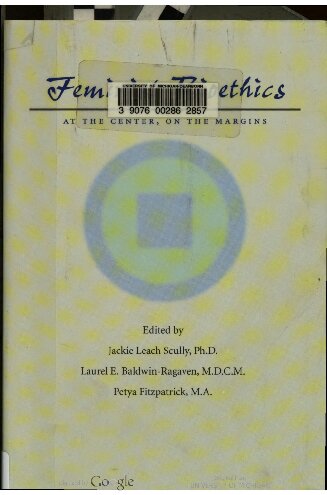

Most ebook files are in PDF format, so you can easily read them using various software such as Foxit Reader or directly on the Google Chrome browser.
Some ebook files are released by publishers in other formats such as .awz, .mobi, .epub, .fb2, etc. You may need to install specific software to read these formats on mobile/PC, such as Calibre.
Please read the tutorial at this link: https://ebookbell.com/faq
We offer FREE conversion to the popular formats you request; however, this may take some time. Therefore, right after payment, please email us, and we will try to provide the service as quickly as possible.
For some exceptional file formats or broken links (if any), please refrain from opening any disputes. Instead, email us first, and we will try to assist within a maximum of 6 hours.
EbookBell Team

4.0
96 reviewsThis volume considers the place of feminist bioethics within the broader international bioethics community.
Since its emergence two decades ago, the feminist perspective on bioethics has existed at the periphery of the discipline's mainstream. Concerns over reproduction and women's health issues—along with the concept that prevailing bioethical thought was fundamentally gendered—were largely subsumed by such overarching issues as the protection of research subjects and by theoretical and methodological frameworks derived from Kantian philosophy and practice-oriented principalism. Now feminist bioethics belongs to both the mainstream and the margins. The essays collected here explore the relation of feminist bioethics to mainstream bioethical thought and practice.
The first section looks at the current trajectory of feminist bioethics, its contributions to the mainstream, and how different types of feminism can inform and strengthen feminist bioethics. In the second section, contributors address autonomy, universalism, and trust to probe how feminist perspectives have altered bioethical theory. The third section examines such challenging issues as cancer genetics, childbirth, rape, and prenatal selection to demonstrate the effect of feminist bioethics on mainstream methodology. Contributors to the fourth section reflect on the relationship between feminist bioethical thought and the viewpoints of racial, ethnic, and cultural minorities, including people with disabilities.
Philosophically grounded, methodologically sound, and theoretically rigorous, this paradigm-challenging collection ponders the most dynamic areas of feminist inquiry into bioethical thought and practice and sketches future directions for this rapidly growing field.